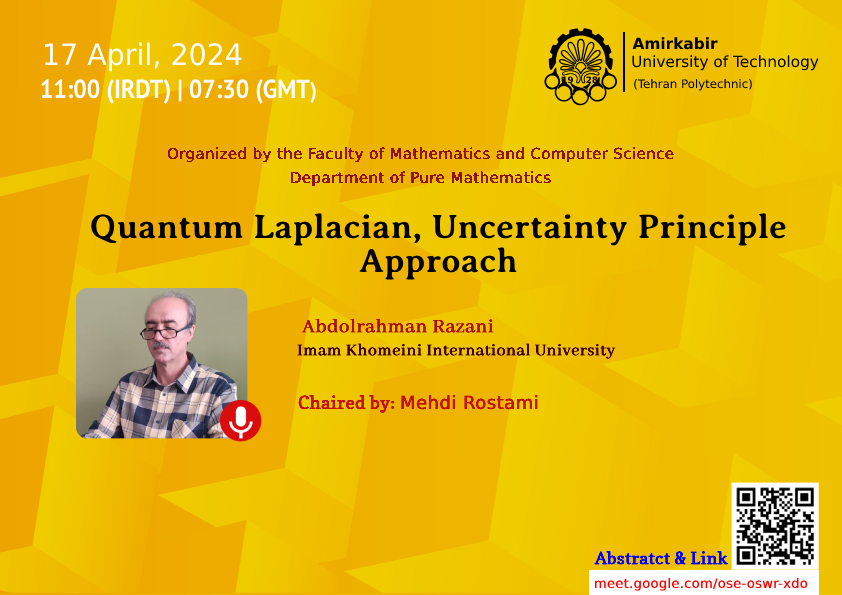Apr 17, 2024
Quantum Laplacian, Uncertainly Principle Approach
Location:
Tehran, Iran
Time:
Apr 17, 2024
11:00 am (GMT+03:30)
Audience:
- General public
Organiser:
Amirkabir University of Technology(Tehran Polytechnic)
Type of event:
Online event

In the realm of classical physics, a deterministic worldview prevailed, where scientists believed that precise measurements and predictable outcomes governed the behavior of all physical systems. Quantum mechanics is a fundamental theory in physics that describes many systems that classical physics cannot. Classical physics can describe many aspects of nature at macroscopic scale, but is not sufficient for describing them at very small submicroscopic scale. In the early 1920s, Werner Heisenberg, along with other physicists like Erwin Schrodinger and Max Born, played a crucial role in developing matrix mechanics, one of the pillars of quantum theory. This new formalism represented a departure from classical mechanics, employing matrices and operators to describe the behavior of quantum systems. However, the transition to quantum mechanics presented unprecedented challenges to this classical perspective, leading to a paradigm shift that shook the very foundations of physics. At the forefront of this transformation was Werner Heisenberg’s groundbreaking discovery of the Uncertainty Principle. Heisenberg’s Uncertainty Principle can be mathematically expressed as the product of the uncertainties in position (∆x) and momentum (∆p) being greater than or equal to Planck constant (~). This fundamental inequality stated that the more precisely one of these properties is known, the less precise the other can be determined. In the Heisenberg groups Hn, as a simplest example of a noncommutative nilpotent Lie group, we find an abstract form of the commutation relations for the quantum-mechanical position and momentum operators. The commutation relations will be present in the form of the noncommutativity of first order differential operators, more exactly of the horizontal left invariant vector fields. It can be constructed in many different ways, for example, as a group of unitary operators acting on L2(Rn), or it can be identified with the group translations of the Siegel upper half space in Cn, or it can be realized as a group of unitary operators generated by the exponentials of the position and momentum operators in quantum mechanics. In this talk, we present a representation of Laplacian in the Heisenberg groups Hn and review a well-known problem.
*Disclaimer: The World Quantum Day is not responsible for the accuracy of the information submitted about this event.